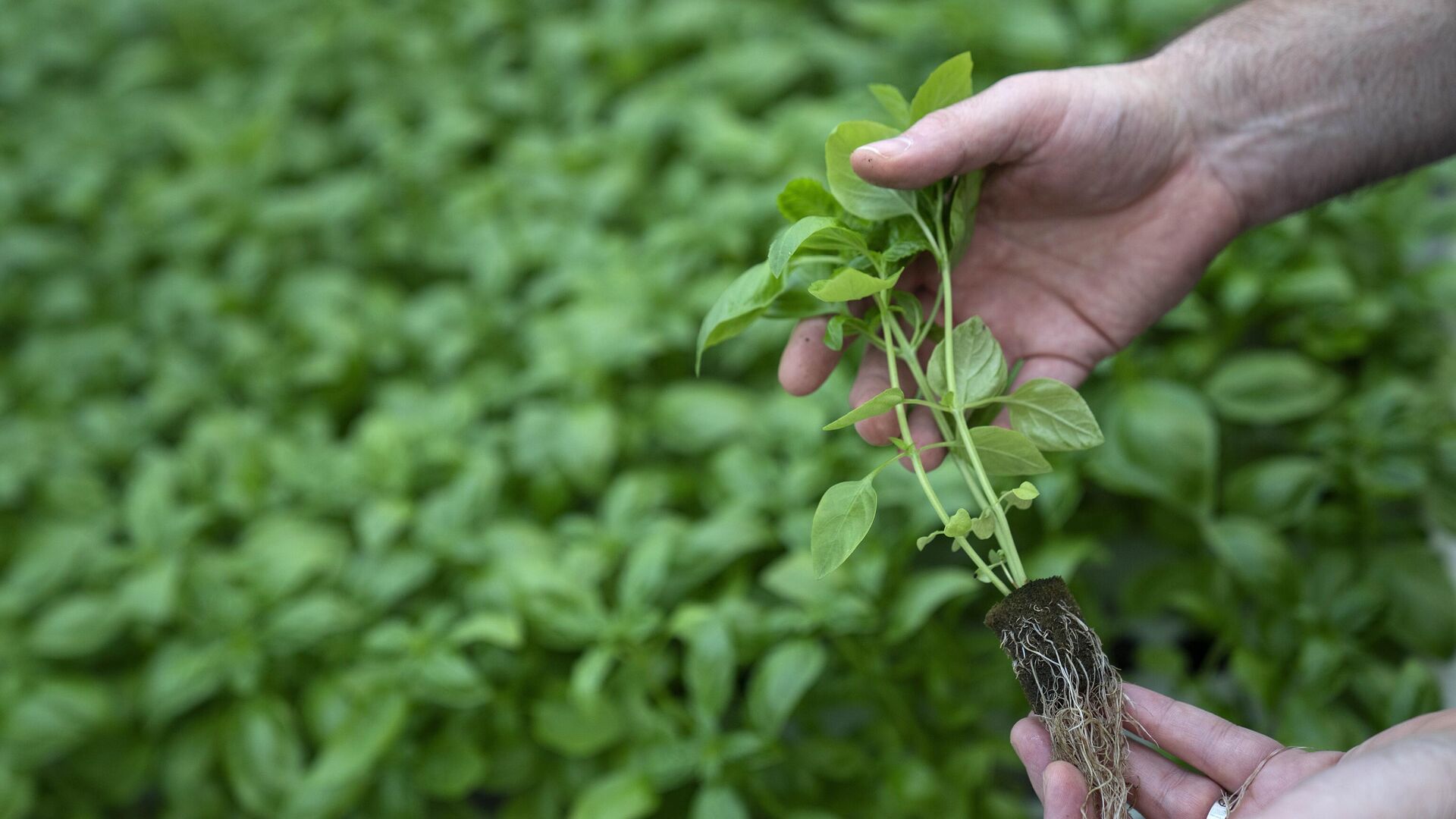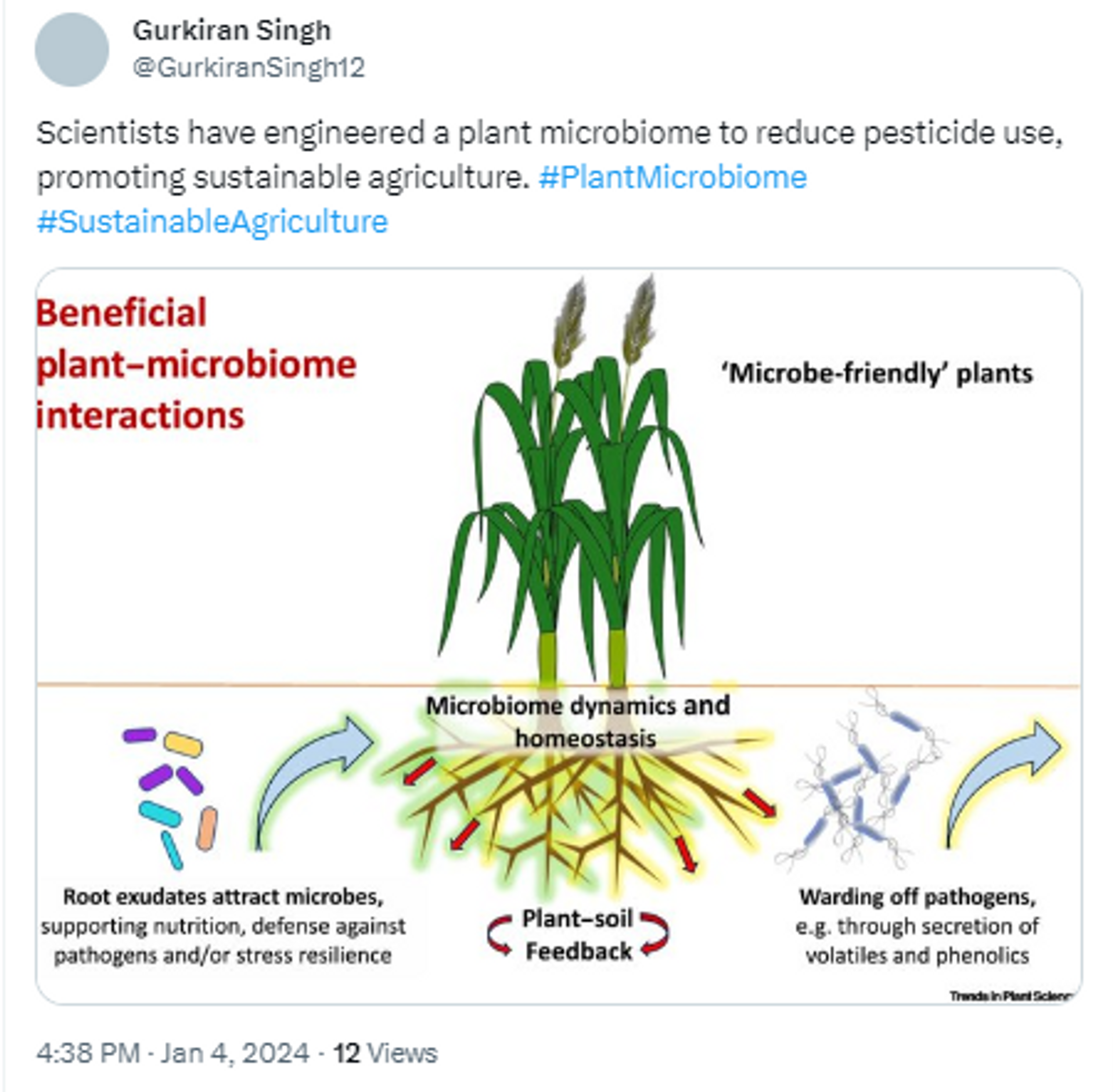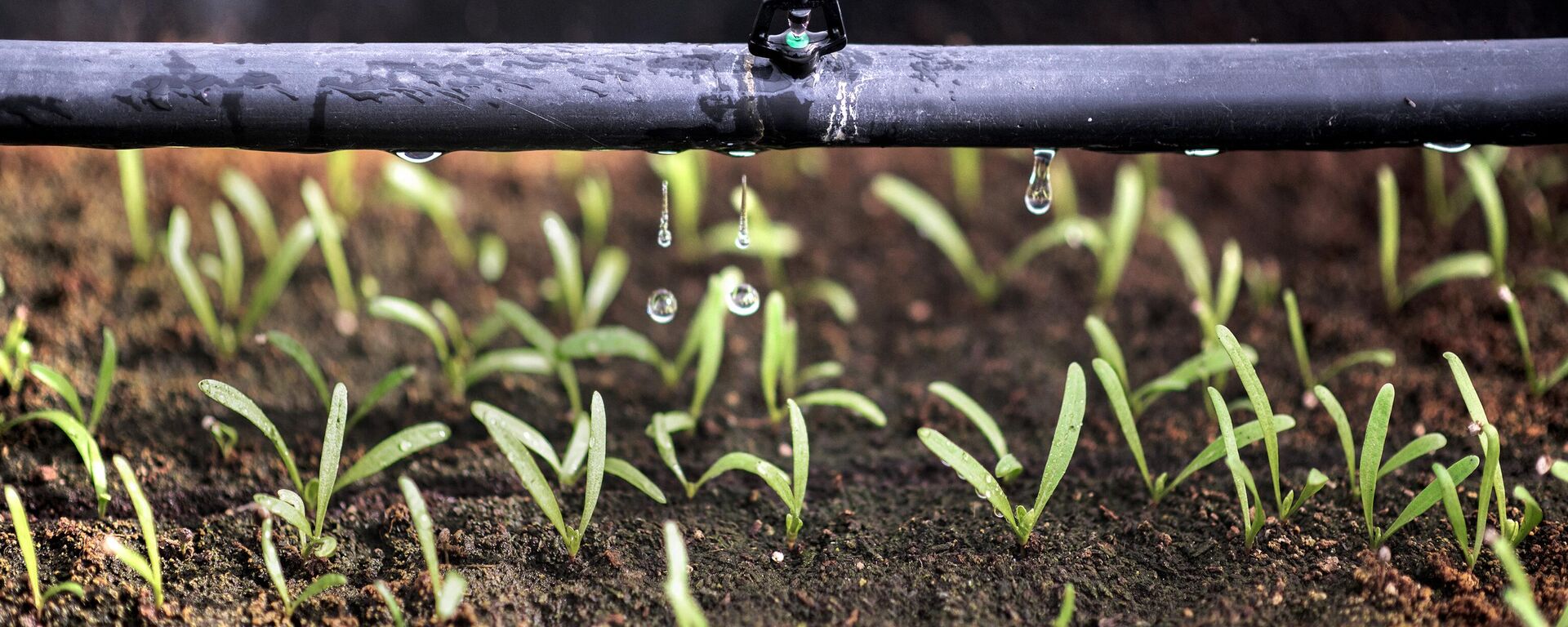https://sputniknews.in/20240105/scientists-engineer-plant-microbiome-to-drastically-reduce-pesticide-use-6094340.html
Scientists Engineer Plant Microbiome to Drastically Reduce Pesticide Use
Scientists Engineer Plant Microbiome to Drastically Reduce Pesticide Use
Sputnik India
An international team of researchers has accomplished a groundbreaking feat by engineering plant microbiome to protect crops against diseases and reduce pesticide use.
2024-01-05T15:25+0530
2024-01-05T15:25+0530
2024-01-05T15:25+0530
science & tech
india
science & tech
health
indian farmers
agriculture
ministry of earth sciences
environment
environmental crisis
https://cdn1.img.sputniknews.in/img/07e8/01/05/6097990_0:160:3072:1888_1920x0_80_0_0_ae4c2b9b05adab4d391c34651d1bc7e7.jpg
With the aim of increasing the prevalence of good bacteria that protect the plant from disease and reduce the need for environmentally damaging pesticides, a group of scientists has engineered the plant microbiome.In a study published in the journal Nature Communications, scientists say that people are becoming increasingly aware of the 'gut microbiome' - the microorganisms that live in our digestive system and have a major impact on our metabolism and immune system.Scientists are now investigating the impact of microbiomes - the diverse array of bacteria, fungi, viruses and other microorganisms that live alongside plants - on their health and susceptibility to disease, highlighting the significant benefits they offer to humans.Cernava shared that while they have successfully achieved this in rice crops, the framework they have developed has the potential to be used in other plants, opening up new opportunities to improve their microbiome.Researchers tested the engineered plant by exposing it to a bacteria known to cause rice blight, and it showed greater resistance to the bacteria than the wild form.
https://sputniknews.in/20231226/electrifying-hydroponics-scientists-make-barley-grow-50-faster-5969570.html
india
Sputnik India
feedback.hindi@sputniknews.com
+74956456601
MIA „Rossiya Segodnya“
2024
Sangeeta Yadav
https://cdn1.img.sputniknews.in/img/07e6/0c/0f/110602_0:0:641:640_100x100_80_0_0_c298016a79eb02ef8caa9d1f688c12a5.jpg
Sangeeta Yadav
https://cdn1.img.sputniknews.in/img/07e6/0c/0f/110602_0:0:641:640_100x100_80_0_0_c298016a79eb02ef8caa9d1f688c12a5.jpg
News
en_IN
Sputnik India
feedback.hindi@sputniknews.com
+74956456601
MIA „Rossiya Segodnya“
Sputnik India
feedback.hindi@sputniknews.com
+74956456601
MIA „Rossiya Segodnya“
Sangeeta Yadav
https://cdn1.img.sputniknews.in/img/07e6/0c/0f/110602_0:0:641:640_100x100_80_0_0_c298016a79eb02ef8caa9d1f688c12a5.jpg
scientist, engineer, plant microbiome, reduce, pesticide use, engineering plant microbiome, protect crops against diseases, good bacteria, protect plant from disease, environmentally destructive pesticides, journal nature communications, gut microbiome, digestive systems, immune system, impact of microbiomes, bacteria, fungi, viruses, microorganisms, tomislav cernava, research paper, pesticides, synthetic fertilisers, rice crops,
scientist, engineer, plant microbiome, reduce, pesticide use, engineering plant microbiome, protect crops against diseases, good bacteria, protect plant from disease, environmentally destructive pesticides, journal nature communications, gut microbiome, digestive systems, immune system, impact of microbiomes, bacteria, fungi, viruses, microorganisms, tomislav cernava, research paper, pesticides, synthetic fertilisers, rice crops,
Scientists Engineer Plant Microbiome to Drastically Reduce Pesticide Use
An international team of researchers has achieved a breakthrough by engineering the plant microbiome to protect crops from disease and reduce pesticide use.
With the aim of increasing the prevalence of good bacteria that protect the plant from disease and reduce the need for environmentally damaging pesticides, a group of scientists has engineered the plant microbiome.
In a study published in the journal Nature Communications, scientists say that people are becoming increasingly aware of the 'gut microbiome' - the microorganisms that live in our digestive system and have a major impact on our metabolism and immune system.
Scientists are now investigating the
impact of microbiomes - the diverse array of bacteria, fungi, viruses and other microorganisms that live alongside plants - on their health and susceptibility to disease, highlighting the significant benefits they offer to humans.
Tomislav Cernava, co-author of the research, said that for the first time they have been able to specifically alter the composition of a plant's microbiome, increasing the population of good bacteria that can protect the plant from harmful bacteria. He added that this breakthrough could reduce reliance on pesticides or synthetic fertilisers, which are harmful to the environment.
Cernava shared that while they have successfully achieved this in rice crops, the framework they have developed has the potential to be used in other plants, opening up new opportunities to improve their microbiome.
Researchers tested the engineered plant by exposing it to a bacteria known to cause rice blight, and it showed greater resistance to the bacteria than the wild form.




